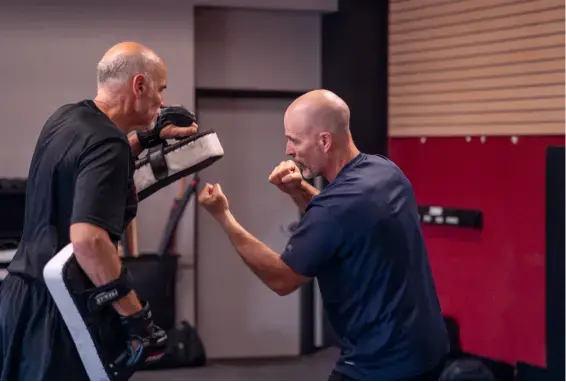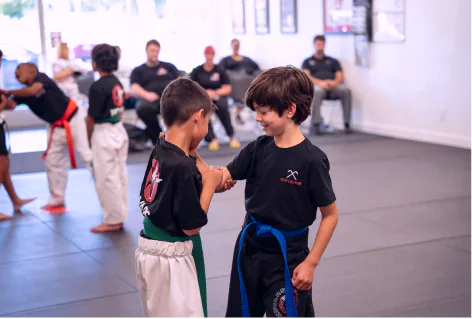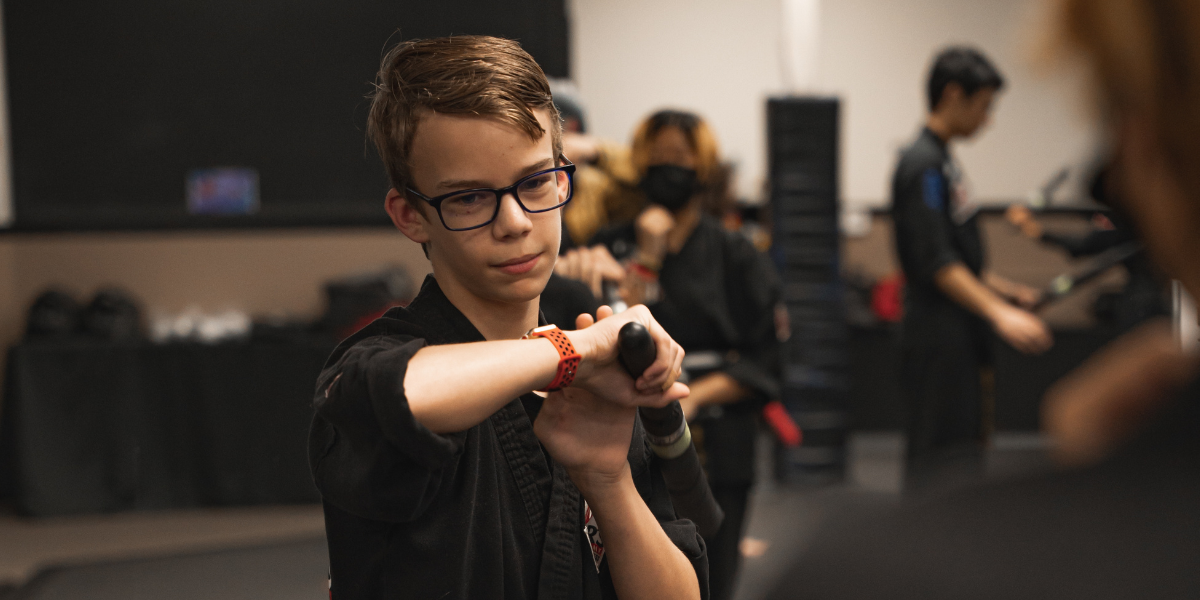Why It’s Important for Kids to Learn Conflict Resolution Skills (And How Martial Arts Helps)
Teaching kids conflict resolution early builds empathy, confidence, and self-control. Discover why it matters—and how martial arts makes a difference.

Conflict Is Inevitable—But Chaos Doesn’t Have to Be
If you’ve ever had to break up a sibling spat or mediate a playground disagreement, you know: kids don’t always come pre-equipped with the tools to handle conflict. But here’s the good news—conflict resolution is a skill, and like any skill, it can be taught.
In fact, teaching kids how to resolve disagreements respectfully may be one of the most powerful gifts we can give them. It fosters empathy, emotional intelligence, and resilience—traits that help children navigate school, friendships, and eventually, the workplace.
What Happens When Kids Don’t Learn Conflict Resolution?
Without healthy conflict resolution skills, children may:
- Resort to aggression or avoidance
- Struggle with friendships and peer relationships
- Have trouble expressing their needs and emotions
- Develop low self-esteem from unresolved tensions
But when they do learn how to manage conflict? They become better communicators, more confident leaders, and more emotionally secure.
5 Ways to Teach Kids Healthy Conflict Resolution
1. Model Calm Communication
Children learn by example. When adults handle disagreements respectfully—without yelling or blaming—kids pick up on those cues.
2. Encourage “I” Statements
Instead of “You never share!” teach them to say, “I feel upset when I don’t get a turn.” This small shift helps children own their feelings without attacking others.
3. Teach Listening Skills
Conflict resolution starts with understanding. Help kids practice eye contact, active listening, and repeating back what they heard to avoid misunderstandings.
4. Role-Play Common Scenarios
Act out situations like sharing toys or dealing with teasing. Guide your child in exploring both sides and coming up with solutions together.
5. Praise Positive Behavior
When your child handles a disagreement well, point it out. Reinforcing positive conflict resolution boosts confidence and encourages repetition.
How Martial Arts Reinforces Conflict Resolution in Real Life
Martial arts might not seem like the first place you’d learn peaceful conflict resolution—but it actually teaches it better than most.
Here’s how:
- Respect is non-negotiable. From bowing to partners to listening attentively, respect is woven into every part of martial arts culture.
- Self-control is a top priority. Kids learn to respond, not react—an essential part of de-escalating conflict.
- Discipline and emotional regulation are built in. Regular training helps children develop the ability to stay calm under pressure.
- Confidence replaces aggression. When kids feel strong and secure, they’re less likely to lash out or back down.
- Instructors serve as role models. Kids are guided by adults who consistently demonstrate and reinforce respectful problem-solving.
Kovar’s Martial Arts: Teaching Sacramento Kids More Than Kicks and Punches
With 9 locations across the Sacramento area, Kovar’s Martial Arts teaches children not just how to defend themselves—but how to stay out of fights in the first place. The program emphasizes character development, leadership, and yes, effective conflict resolution.
Each class includes life skills training that helps kids apply what they learn in the dojo to their everyday relationships.
👉 Learn more about Kovar’s character-based kids programs
Final Thought: Equip Your Child With Skills That Last a Lifetime
Teaching conflict resolution isn’t just about avoiding tantrums or classroom squabbles. It’s about empowering your child to be a thoughtful communicator, a compassionate friend, and a capable leader.
Looking for a structured way to build these lifelong skills? Martial arts might be the solution you didn’t know you needed.



